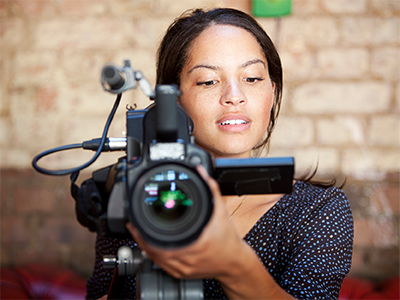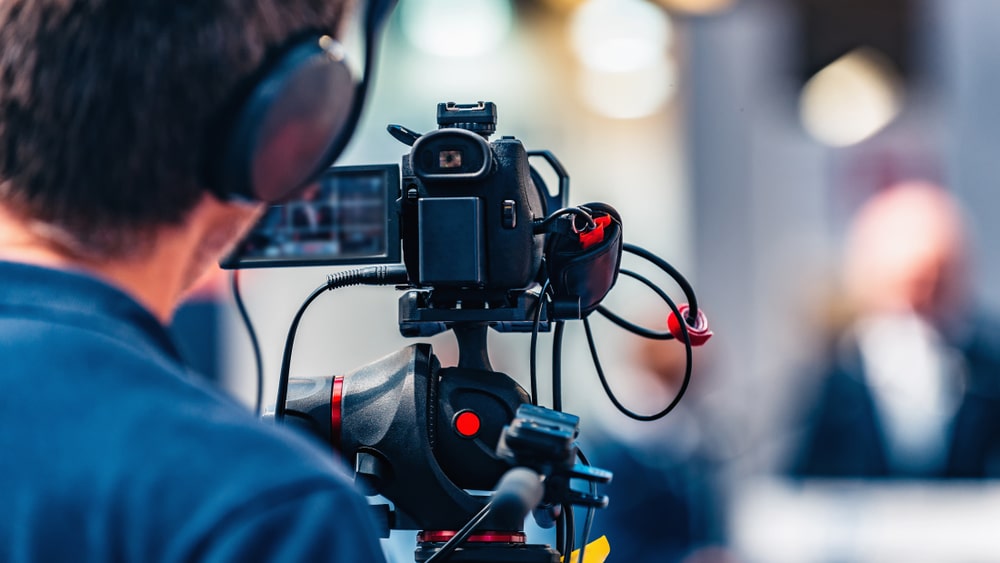The Role of Legal Videography in Depositions and Trials
Lawful videography has emerged as an essential tool in both depositions and trials, offering a complex strategy to documenting witness statements. By recording not only the spoken word but additionally the subtleties of non-verbal communication, this tool improves the trustworthiness of testaments and protects essential evidence for future process. As attorneys increasingly identify its value, it triggers a deeper assessment of how these visual records can affect juror assumptions and trial end results. What ramifications might these growths hold for the future of lawful practice?
Importance of Lawful Videography
Legal videography plays a crucial function in the paperwork and presentation of depositions and tests. This customized field combines technical abilities with lawful knowledge to create a trustworthy document of proceedings that can substantially influence situation results. The aesthetic aspect of lawful videography boosts the understanding of witness statement, permitting jurors and judges to observe not just the spoken words yet additionally the disposition, feelings, and body language of the witnesses.

The relevance of lawful videography extends past the courtroom; it also plays an important function in protecting evidence for future referral, whether for allures or further lawful action. Its assimilation right into the lawful procedure is vital for making sure a fair and precise depiction of the facts, ultimately contributing to the search of justice.

Process of Legal Videography
While recording the subtleties of depositions and tests, the process of lawful videography includes a number of important steps that guarantee top quality, precise recordings. A specialist lawful videographer prepares by assessing the case products and recognizing the details needs of the deposition or trial. This prep work includes familiarizing themselves with the participants and the context, which helps in recording pertinent details.
On the day of the recording, the videographer sets up the essential equipment, which normally consists of high-def video cameras, microphones, and proper lighting. Making sure optimum angles and audio quality is important, as it straight affects the efficiency of the recording. The videographer interacts with attorneys and participants to establish protocols, making sure that everybody comprehends the recording process.
Throughout the deposition or trial, the videographer diligently videotapes the proceedings, paying very close attention to both verbal and non-verbal hints. legal videography. This includes catching the temperament and reactions of witnesses and lawyers. After the session ends, the videographer may modify the video for quality and conformity with lawful requirements, generating a final product that accurately reflects the process for future reference and use in lawful contexts
Advantages in Depositions
The unification of videography in depositions offers numerous benefits that improve the overall process of collecting evidence. One primary advantage is the ability to capture witness testaments with aesthetic and acoustic integrity, providing a much more accurate representation of the witness's demeanor, tone, and body language. This multidimensional technique allows attorneys and courts to analyze reliability extra successfully than traditional written transcripts alone.
Furthermore, videographed depositions work as a powerful tool for protecting testament. Needs to a witness become inaccessible for test, their recorded deposition can be played in court, ensuring that their evidence stays obtainable and relevant. This facet dramatically minimizes the risk of shedding essential information that could influence case end results.
Additionally, making use of legal videography promotes much better preparation for attorneys. Evaluating video footage permits lawful groups to evaluate and refine their strategies, identifying toughness and weak points in their instances. This primary benefit can bring about even more engaging discussions in court.
Finally, videography boosts Learn More the general professionalism and reliability of the deposition process, instilling confidence in clients relating to the thoroughness of their legal representation. By leveraging innovation, attorneys can considerably improve the effectiveness of depositions.
Influence On Tests
In lots of trials, the assimilation of videography can dramatically affect the discussion of proof and the court's assumption. Legal videography captures witness testimonies and essential proof in a vibrant format, allowing jurors to involve with the material on numerous degrees. This aesthetic component enhances the narration aspect of a trial, offering context and emotional resonance that typical text-based proof might lack.
Moreover, video clip recordings can work as powerful devices for impeachment see here during interrogation. When inconsistencies arise in between a witness's prior declarations and their court testimony, video clip evidence offers an unbiased recommendation that can persuade jurors' opinions. This immediacy and clarity can strengthen the reputation of a celebration's narrative while all at once weakening opposing arguments.
Furthermore, using videography can assist improve complicated information, making it much more easily accessible to jurors that might have a hard time to understand detailed details offered entirely via verbal testament. By combining visuals with acoustic information, lawful videography can boost retention and understanding, eventually influencing the jury's decision-making procedure. The effect of videography in trials extends beyond mere aesthetics; it plays an important duty in shaping the legal landscape and results.
Future Trends in Legal Videography
As we look towards the future of lawful videography, numerous arising trends guarantee to improve its role within the court. One substantial pattern is the combination of artificial knowledge (AI) in video clip evaluation and editing and enhancing - legal videography. AI can streamline the process of determining vital moments in tape-recorded depositions, enabling lawyers to promptly access pertinent web content, thereby improving effectiveness in browse around this web-site instance preparation
Furthermore, the increase of online reality (VIRTUAL REALITY) and enhanced fact (AR) innovations is anticipated to change how jurors experience evidence. By submersing jurors in a substitute setting, these innovations can provide a more profound understanding of complicated situations, resulting in more educated deliberations.

Furthermore, the boosting demand for remote depositions, increased by the COVID-19 pandemic, will likely continue. Lawful videographers will certainly require to adapt to brand-new software and platforms to make certain high-grade recordings in digital setups.
Lastly, the growing focus on data safety and security will demand stricter methods for saving and sharing video evidence. As the lawful landscape progresses, legal videographers must remain abreast of these patterns to maintain their importance and efficiency in the judicial procedure.

Verdict
In recap, legal videography serves a critical function in the judicial procedure, improving the honesty of depositions and trials. As innovation proceeds to develop, lawful videography is positioned to further transform its function within the lawful landscape.